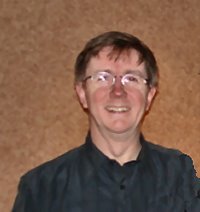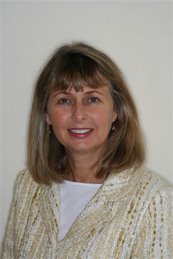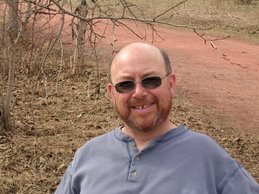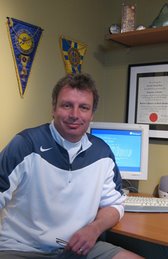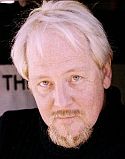So to celebrate the passage of time as we tick towards the work=shopping of our play - lets start with some mini-interviews of some people very involved in chronic pain.

First, let's start with Dr. Chris Spanswick. Dr. Spanswick is with the Calgary Health Region and practices as a pain physician at the Chronic Pain Centre. He is also the Medical Lead for the Regional Pain Program. Dr. Spanswick, and his associated Dr. Chris Main, actually wrote the text book "Pain". You can see Dr. Spanswick's picture on the right hand column, as he is on our advisory committee. Here is what he has to say.
Dr. Chris Spanswick
Q: You started out as an anesthetist. Can you tell us what led you into the field of pain medicine from there?
Chris Spanswick: Having a boss who was a pain in the but, I was looking for a cure! My first boss in anaesthesia was interested in chronic pain. It was down hill from then on.
Q: How has the practice of treating pain changed from when you first started out to the present day?
CS: People get better! Doctors don't carry the burden on their own anymore. Slowly people actually believe chronic pain exists! Needles are used more judiciously.
Q: Can you define chronic pain, for anyone who might not really understand the term?
CS: Living with a fire alarm going off all the time.
Q: What frustrates you most about the field of pain medicine or treating pain?
CS: Lack of appreciation by non-pain colleagues. Unrealistic expectations given to patients by others. The promise of cures by those who are only good at wallet-ectomies. More money...................for research and treatment resources. Having said that we have more than anyone else I know.
Q: Do you have any words of advice for people out there who are suffering chronic pain?
CS: Trust me I'm a doctor! Take each day as it comes. Keep active if not physically (and that's important) keep active mentally and socially. You are what you do. So make sure you don't do nothing but you do something.
Don't trust people who say they can cure you especially if they make a lot of money from you!
Q: How did you get involved in the Pain Diaries Advisory Committee?
CS: I was told to and I always do as I am told! Nobody argues with Deb (and lives!)
Q: Okay, so when I get an idea I must admit that I'm like a dog with a bone and I won't let go! What sort of impact do you feel a play like this could have? Can art and science help each other out, or will they always just be opposite sides of the brain?
CS: It will get pain talked about. It's real and wrecks people lives. They don't imagine this stuff. Perhaps then politicians will listen and take it seriously too. Nobody does until it either happens to them or someone they love.
Q: What do you hope that people involved with and/or viewing this play and documentary will get from the experience?
CS: I hope they laugh and remember the next time they meet someone who has chronic pain. I hope they bug their MLA.
Q: Thank you. Tune in weekly for more interviews. If you have questions or comments, please send them in. We do not guarantee to answer them all on line but will read your correspondence. Please remember that you should get all your medical advice from a trusted primary care physician and NOT the Internet!





